
This report shares updates on the FSDA initiative – helping financial institutions eliminate their agricultural commodity-driven deforestation from their portfolios – across policy and disclosure, company engagement and multi-stakeholder collaboration. Read it here

Finance Sector Deforestation Action (FSDA) Progress Report 2024
This report shares updates on the FSDA initiative – helping financial institutions eliminate their agricultural commodity-driven deforestation from their portfolios – across policy and disclosure, company engagement and multi-stakeholder collaboration.

This report promotes the role of business action as critical to achieving climate adaptation and resilience outcomes, facilitated by the Sharm El-Sheikh Adaptation Agenda framework. It proposes collaborative efforts for businesses, NGOs and policymakers to help deliver system-level transformation across seven sectors. Read it here

Business Action for Adaptation & Resilience
This report promotes the role of business action as critical to achieving climate adaptation and resilience outcomes, facilitated by the Sharm El-Sheikh Adaptation Agenda framework. It proposes collaborative efforts for businesses, NGOs and policymakers to help deliver system-level transformation across seven sectors.

This report provides a testament from to the collective efforts and achievements that have marked a significant milestone in our ongoing journey towards a sustainable future. Central to our discussions and outcomes at COP28 was the pivotal role of nature in addressing climate change, a theme that resonates deeply with the values and vision of […]

Achievements at COP28
This report provides a testament from to the collective efforts and achievements that have marked a significant milestone in our ongoing journey towards a sustainable future. Central to our discussions and outcomes at COP28 was the pivotal role of nature in addressing climate change, a theme that resonates deeply with the values and vision of the United Arab Emirates.

This report maps the challenges to and key enablers of unlocking greater climate action for the built environment, using the UAE as a regional and global blueprint. This includes policies and regulations, buildings materials and systems, access to green finance, data, and skills, in addition to insights on the upcoming policies and priority areas from […]

UAE Sustainability Built Environment Blueprint
This report maps the challenges to and key enablers of unlocking greater climate action for the built environment, using the UAE as a regional and global blueprint. This includes policies and regulations, buildings materials and systems, access to green finance, data, and skills, in addition to insights on the upcoming policies and priority areas from the UAE’s Ministry of Energy and Infrastructure.

To support the first Global Stocktake, the High Level Champions and the Marrakech Partnership have compiled a set of solutions framed in specific actions that need to be scaled up and replicated to catalyze our race to a net zero emissions and resilient world. Read the report

2030 Climate Solutions: An implementation roadmap
To support the first Global Stocktake, the High Level Champions and the Marrakech Partnership have compiled a set of solutions framed in specific actions that need to be scaled up and replicated to catalyze our race to a net zero emissions and resilient world.

This Report reflects the progress that has been made by Race to Zero Partners and their members in their transition towards a resilient global Net Zero world. It shows a positive increase in implementation of the criteria and impact on the real economy. Read the report

Race to Zero 2023 Progress Report
This Report reflects the progress that has been made by Race to Zero Partners and their members in their transition towards a resilient global Net Zero world. It shows a positive increase in implementation of the criteria and impact on the real economy.

Nearly three years since its launch, the Race to Resilience remains committed to its mission of transforming pledges into tangible impacts. This report offers a comprehensive overview of the progress achieved so far. Read the report

Race to Resilience 2023 Campaign Progress Report
Nearly three years since its launch, the Race to Resilience remains committed to its mission of transforming pledges into tangible impacts. This report offers a comprehensive overview of the progress achieved so far.

This report constitutes the global adaptation solutions agenda driving public-private collaboration and partnerships to respond to existing implementation, finance and planning gaps. Read the report

Sharm El-Sheikh Adaptation Agenda Implementation Report 2023
This report constitutes the global adaptation solutions agenda driving public-private collaboration and partnerships to respond to existing implementation, finance and planning gaps.

This report looks at the outcomes and insights from the second edition of the Regional Platforms for Climate Projects initiative to accelerate climate action and advance the UN Sustainable Development Goals. Read it here

Regional Platforms for Climate Projects: Assets to Flows II – One year on
This report looks at the outcomes and insights from the second edition of the Regional Platforms for Climate Projects initiative to accelerate climate action and advance the UN Sustainable Development Goals.

This navigator orients companies and financial institutions within the landscape of business guidance, management tools, methodologies, and disclosure frameworks that address nature and climate action and transparency. Access it here

Nature and Climate Action: A Resource Navigator for Companies and Financial Institutions
This navigator orients companies and financial institutions within the landscape of business guidance, management tools, methodologies, and disclosure frameworks that address nature and climate action and transparency.

This report identifies eight immediate calls to action related to setting global standards, targets, and taxonomy, advancing finance flows, and providing a conducive environment for climate adaptation and resilience project setup and delivery. Read the report

Adaptation & Resilience Through Land Transport Infrastructure Systems: Protecting Communities And Economies
This report identifies eight immediate calls to action related to setting global standards, targets, and taxonomy, advancing finance flows, and providing a conducive environment for climate adaptation and resilience project setup and delivery.

This year’s report seeks to answer what the latest climate science indicate is required for each sector of the economy, and where we are seeing positive exponential change that we can build on.

State of Climate Action 2023
The State of Climate Action 2023 offers a comprehensive roadmap of how to close the global gap in climate action across sectors and can inform governments’ rapid response plan to the Global Stocktake at COP28.
Published under Systems Change Lab, the report is a joint effort of the Bezos Earth Fund, Climate Action Tracker (a project of Climate Analytics and NewClimate Institute), ClimateWorks Foundation, the UN Climate Change High-Level Champions and World Resources Institute (WRI).

Unlocking investment at scale in critical coastal ecosystems: Mangroves

The Mangrove Breakthrough Financial Roadmap
This report points towards the financial roadmap to conserver and restore mangroves, as a vital form of natural capital and a nature-based solution. As part of the Mangrove Breakthrough’s 2030 targets, the partner organisations illustrate the seven key actions around partnerships, global funding, debt for SMEs, micro-financing, insurance and both domestic and international public finance.
An estimated $4 billion in investment between now and 2030 could build, prove and scale mangrove-positive investment opportunities, unlocking a new paradigm for sustainable, long-term flows of capital.
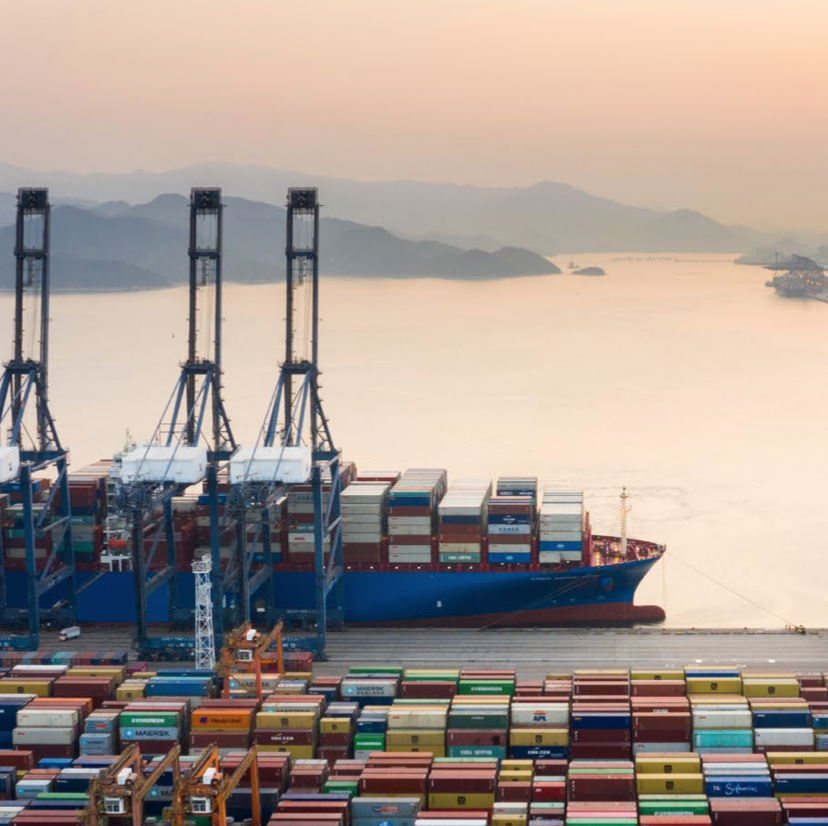
To reach 5% SZEF and go beyond by 2030, immediate action is necessary in the shipping sector

Climate Action in Shipping: Progress Towards Shipping’s 2030 Breakthrough
This report tracks the progress adoption of scalable zero emission fuel (SZEF) of at least 5% of the international shipping fuel energy mix by 2030 relative to the total energy demand used, and compares this against last year’s progress.
After the IMO’s Strategy on Reduction of GHG Emissions from Ships pathway was specified in 2023, shipping will need to achieve both a maximisation of energy efficiency this decade (2030) and have advanced through the emergence phase of a transition from fossil fuels to fuels produced from renewable energy.
To reach 5% and go beyond by 2030, immediate action is necessary.

In this report by the Independent High-Level Expert Group (IHLEG) on Climate Finance, the crucial role of nature-based solutions (NbS) in achieving the Paris Agreement’s aims is highlighted.

Mobilizing private capital for nature to meet climate and nature goals
In this report by the Independent High-Level Expert Group (IHLEG) on Climate Finance, the crucial role of nature-based solutions (NbS) in achieving the Paris Agreement’s aims is highlighted. Emphasizing nature’s potential to significantly mitigate climate change by 2030, the document urges the private sector to invest in NbS, referencing initiatives from COP27. The piece also underscores the importance of indigenous knowledge and revaluing nature in our economies for a sustainable future.

This second report in the series assesses progress over the past 12 months against the recommendations made in the inaugural Breakthrough Agenda Report across five key sectors – power, hydrogen, road transport, steel and agriculture.

The Breakthrough Agenda Report 2023
This second report in the series assesses progress over the past 12 months against the recommendations made in the inaugural Breakthrough Agenda Report across five key sectors – power, hydrogen, road transport, steel and agriculture.

This new report provides an overview of the key adaptation and resilience decisions and announcements that took place during COP27 and presents the key messages resulting from the events of the Resilience Hub, offering concluding remarks on next steps towards COP28 and beyond. Read the full report here.

COP27 Resilience Hub Synthesis Report: Key messages and future directions
This new report provides an overview of the key adaptation and resilience decisions and announcements that took place during COP27 and presents the key messages resulting from the events of the Resilience Hub, offering concluding remarks on next steps towards COP28 and beyond.
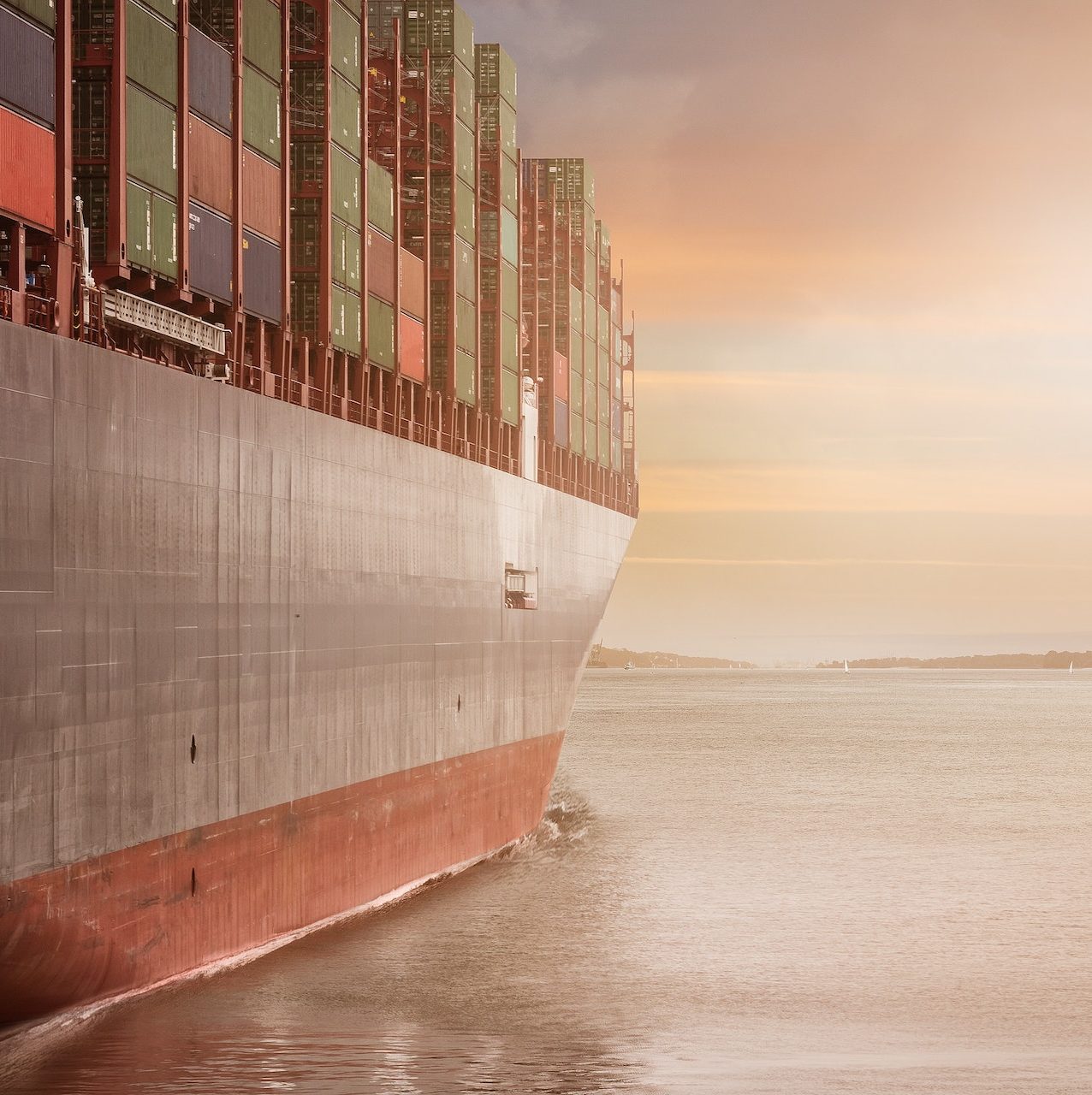
The Maritime Resilience Breakthroughs are the first resilience breakthroughs to emerge from the maritime sector, making it the first sector to elaborate a complementary mitigation and resilience framework.

The Maritime Resilience Breakthroughs
Many actors are working to improve aspects of the maritime sector’s resilience. High-impact solutions are emerging, but they are not linked by a common framework and set of targets to coordinate action at scale, or by metrics to evaluate progress. Accelerating the pace and scale of the resilience
transition will require a consolidated action agenda. This is the objective of the Maritime Resilience Breakthroughs. These are the first resilience breakthroughs to emerge from the maritime sector, making it the first sector to elaborate a complementary mitigation and resilience framework.

Insights from the regional finance forums on climate initiatives to accelerate climate the SDGs.

Assets to Flows
This report summarizes the work and key insights on what it will take to convert financial assets into flows derived from a series of forums, titled “Climate Initiatives to Accelerate Climate Action and Advance the SDGs”, which were co-convened by the COP27 Presidency, the five United Nations Regional Commissions, and the Champions for COP26 and COP27 over the course of 2022.
The outcome of the forums includes both practical insights and project lists. An illustrative selection of the projects identified through these forums will be made available online with a number to feature as part of a United Nations-published Compendium of Climate-Related Initiatives and a Climate Champions’ Extended Compendium of Climate-Related Initiatives published alongside this report.

The report explains how a “blue ambition loop” – the positive feedback loop in which bold government policies and non-state actor leadership reinforce each other – can take ocean-based climate action to the next level.

BLUE AMBITION LOOP: Achieving Ambitious 2030 Ocean-Climate Action
Ocean-based climate solutions have been identified as key to deliver on the Race to Zero and Race to Resilience campaigns through immediate action to halve global emissions by 2030 and deliver a healthier, more equitable, nature-positive and net-zero carbon world by no later than 2050, in line with global efforts to limit warming to 1.5°C. The report, by the UN Climate Change High-Level Champions, explains how a “blue ambition loop”— the positive feedback loop in which bold government policies and non-state actor leadership reinforce each other – can take ocean-based climate action to the next level.
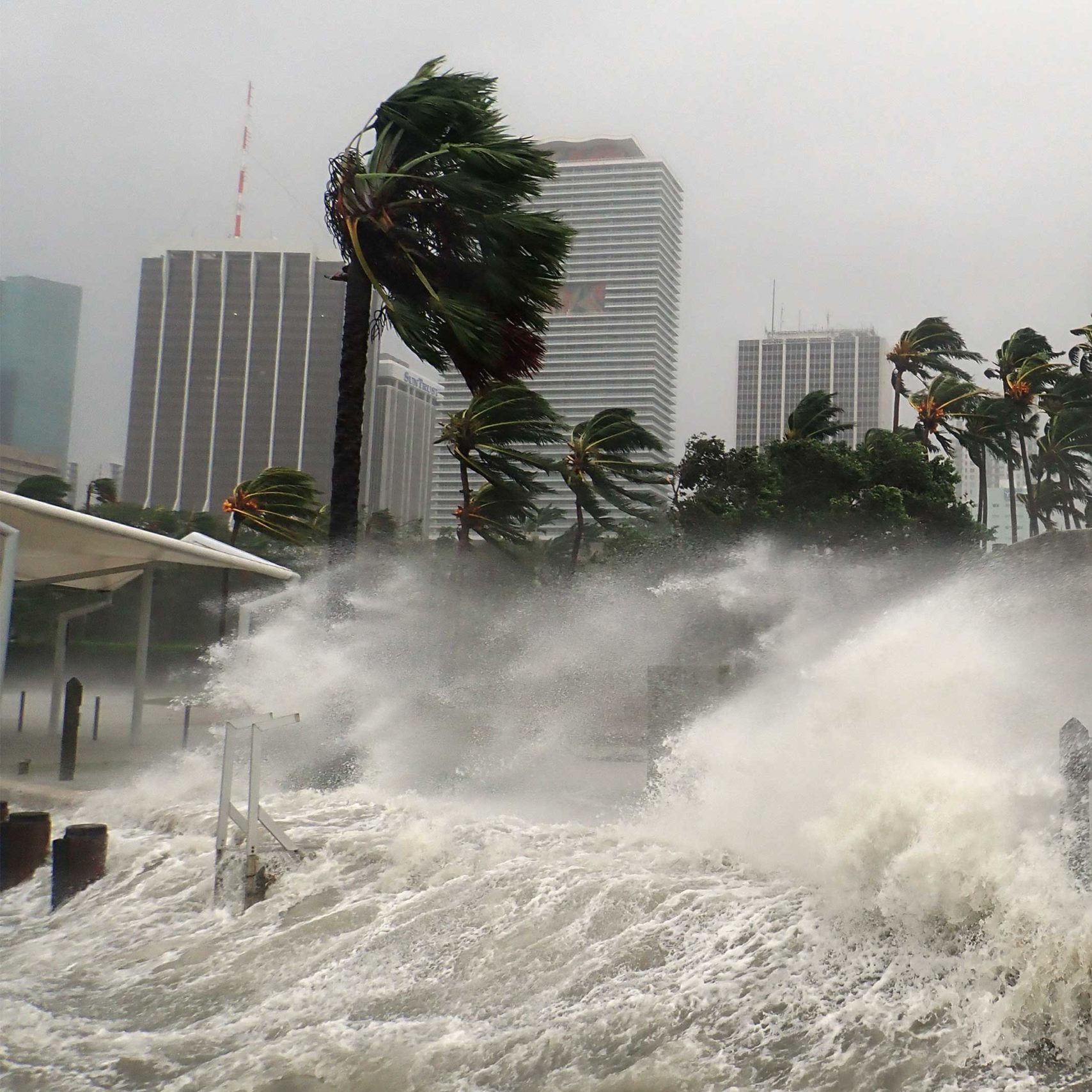
The Blue-Tinted White Paper is intended to inform the key stakeholders involved in funding and financing coastal cities adaptation and building resilience.

Blue-Tinted White Paper, Investment Protocol: Unlocking Financial Flows for Coastal Cities Adaptation to Climate Change and Resilience Building
The Blue-Tinted White Paper is intended to inform the key stakeholders involved in funding and financing coastal cities adaptation and building resilience. These include: private banks, asset managers, pension funds, private equity firms, insurance and credit rating agencies; multilateral banks, international development aid; philanthropic and impact investment sectors, relevant blue economy/blue tech industries such as coastal tourism, real estate, shipping, ports, fisheries and aquaculture, offshore renewable energy, as well as innovators at a variety of scales; and coastal cities leaders, practitioners and related funding and financing institutions.
Read the full report here.

This report is a first joint progress report to reflect on the progress made across two major global climate campaigns Race to Zero and Race to Resilience, ahead of COP27.

Global Campaigns Progress Report
This report is a first joint progress report to reflect on the progress made across two major global climate campaigns Race to Zero and Race to Resilience, ahead of COP27. Together, both campaigns rally over 13,000 companies, financial institutions, cities, states, regions and others (referred to as non-State actors) to step up their ambition, put plans in place and scale action on adaptation and resilience and on greenhouse gas emissions reductions. It showcases the actors racing together to make a resilient, zero carbon world a reality.
This report captures a sense of the progress that is measurable at this point in time, and shares both the successes and challenges of non-state actors who are globally addressing mitigation and adaptation. It highlights important actions of the members in both campaigns contributing to achieve 1.5°C and increase resilience; it celebrates and applauds those who are lighting the way to a better world; and identifies the gaps that still need plugging in the run up to COP27 and beyond.
Read the full report here.

We need to simultaneously muster efforts behind adaptation and resilience breakthroughs. Urgent action is needed now at an unprecedented pace and scale.

Adaptation and Resilience Breakthroughs
We need to simultaneously muster efforts behind adaptation and resilience breakthroughs because millions of people globally are already experiencing the economic, social and ecosystem impacts of climate change. In 2021 alone, extreme weather driven by climate change caused over US$170 billion in damages. Urgent action is needed now at an unprecedented pace and scale.
Read the full report here.
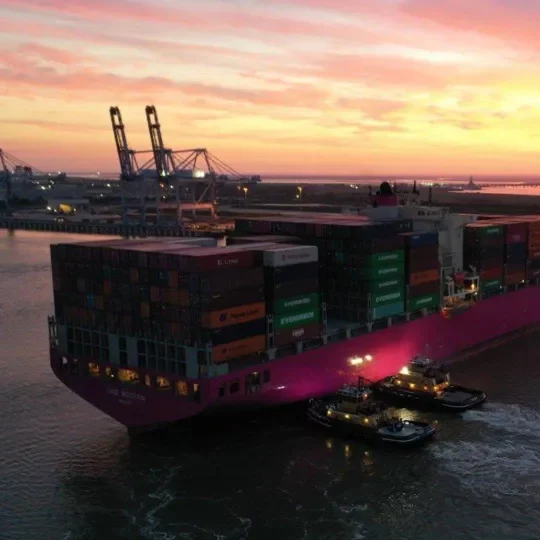
This report assesses progress to a goal of having scalable zero emission fuels (SZEF) make up 5% of international shipping fuels by 2030.

Climate Action in Shipping
This report assesses progress to a goal of having scalable zero emission fuels (SZEF) make up 5% of international shipping fuels by 2030. The findings show significant progress, especially in terms of commitments by industry, national governments, and positive developments at the International Maritime Organization (IMO). The 5% goal can be viewed as a breakthrough needed to rapidly scale uptake of SZEF and achieve zero emission shipping by at least 2050. Currently, actions towards this 5% goal can be considered as being partially on track. This is because, even though progress has been significant, more is needed to bring us to 5% and beyond, not just in terms of commitments, but also in terms of converting those commitments into concrete developments.
To read the full report, please click here:

This report presents an overview of the current landscape across the voluntary climate leadership initiatives, and emerging standards and regulations, and offers insights on how to dramatically accelerate from voluntary action to the adequate standards, policies and regulations needed to deliver climate action at scale and achieve the mitigation goal of the Paris Agreement – recognising the different circumstances, capacities and needs of different countries.

The Pivot Point
This report is a product of radical collaboration across organisations working on accelerating non-state actor climate action in support of the Paris Agreement, coming together to share findings, insights and perspectives. It presents an overview of the current landscape across the voluntary climate leadership initiatives, and emerging standards and regulations, and offers insights on how to dramatically accelerate from voluntary action to the adequate standards, policies and regulations needed to deliver climate action at scale and achieve the mitigation goal of the Paris Agreement – recognising the different circumstances, capacities and needs of different countries. It explores some appropriate enabling environments and outlines the wide array of tools available, and highlights key questions to address hereon, providing a thought piece for dialogue and consideration.
Read the full report here.
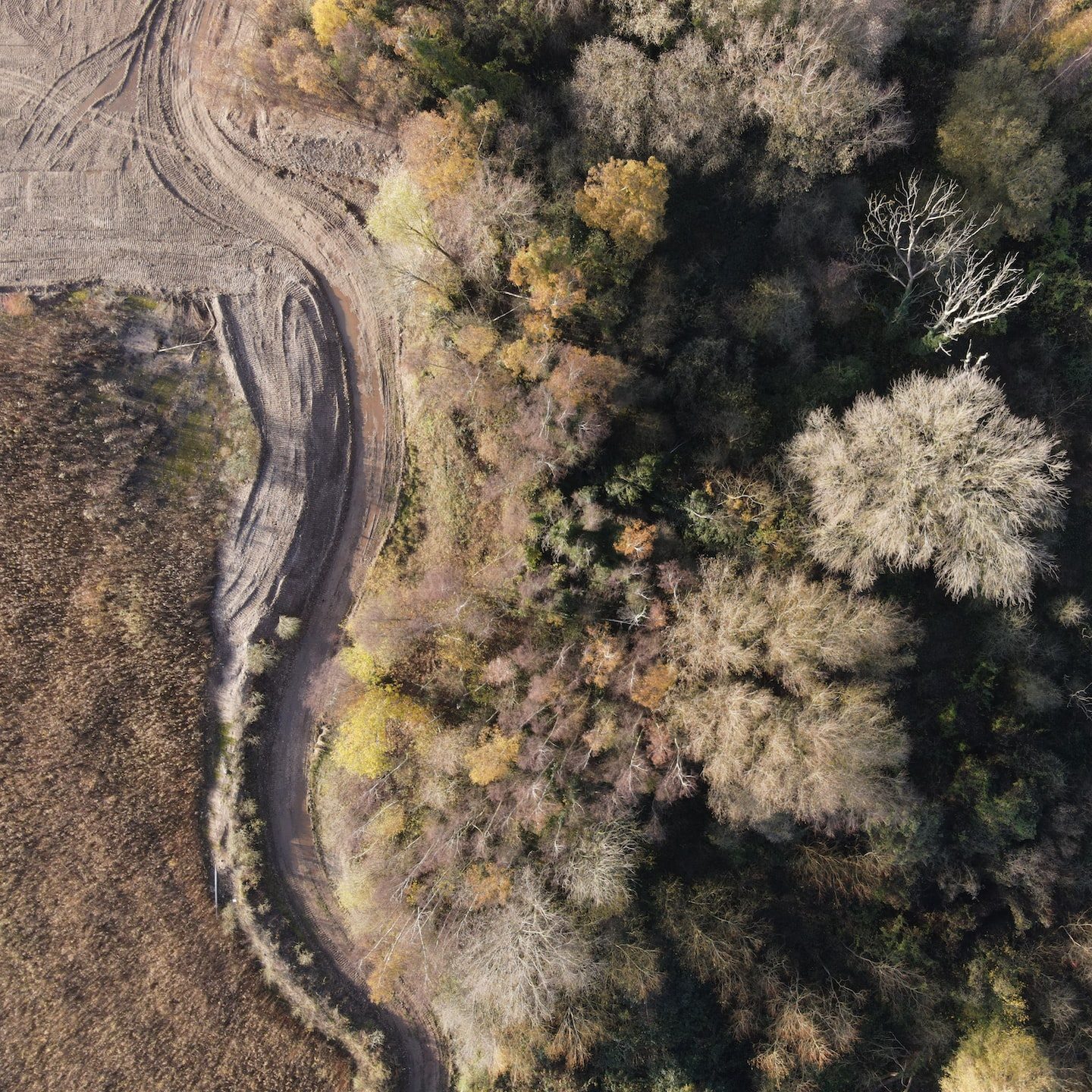
Containing first of its kind analysis, the report highlights how the coming land use transition will drive a wedge between financial winners and losers in the sector.

Assessing the financial impact of the land use transition on the food and agriculture sector
Containing first of its kind analysis, the report highlights how the coming land use transition will drive a wedge between financial winners and losers in the sector. The thriving companies and investors of tomorrow will be those who move early to align their business models with, and help accelerate, the land use transition – developing and tapping solutions for a net zero, nature positive, resilient food system that could generate up to USD$4.5 trillion of new business opportunities annually by 2030. Meanwhile, those who fail to act could shortly see billions of dollars of value permanently lost.
To read the full report, please click here.
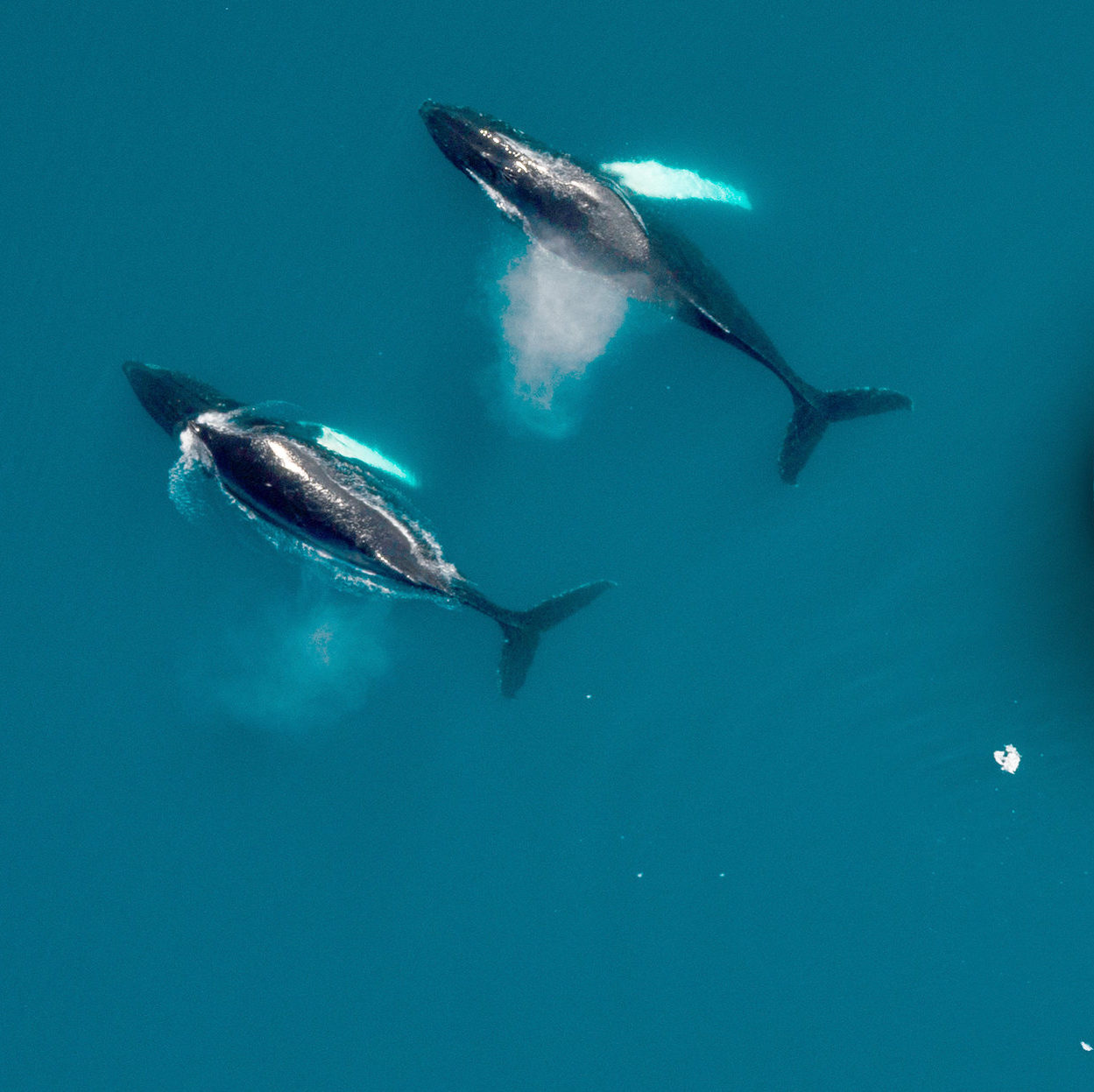
The 2022 Breakthrough Agenda Report provides an assessment of progress towards each Breakthrough goal and a framework for tracking progress in the future.

The Breakthrough Agenda Report: Accelerating Sector Transitions Through Stronger International Collaboration 2022
The 2022 Breakthrough Agenda Report provides an assessment of progress towards each Breakthrough goal and a framework for tracking progress in the future, a pathway of coordinated international actions through to 2030 and a set of specific recommendations on the most urgent and high impact opportunities to strengthen international collaboration that can accelerate progress across each Breakthrough sector.
To read the report in full, please click here.
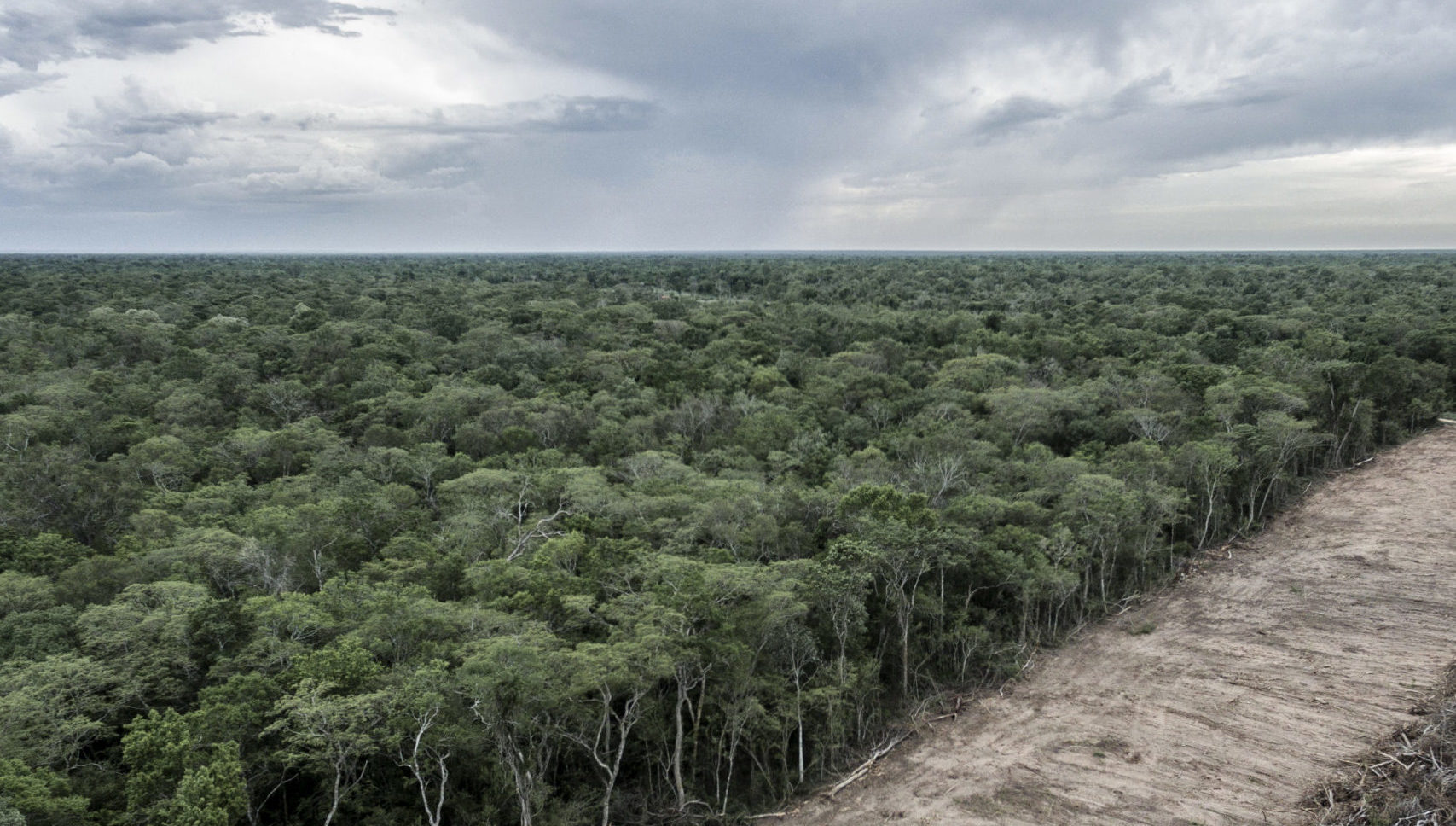
Initial research paper from the UN Climate Change High-Level Climate Champions, Global Canopy, The Accountability Framework initiative, WWF and the Science Based Targets initiative.

Why net zero needs zero deforestation now
Analysis from the UN Climate Change High-Level Climate Champions, Global Canopy, The Accountability Framework initiative and the Science Based Targets initiative shows over 90% of major forest, land and agriculture companies that have committed to net-zero could be at risk of missing their climate commitments due to a lack of action on deforestation.
To read the full report, please click here.

This report highlights views and practices that are emerging from the financial sector with respect to the application of Paris alignment, net zero, and the theme of ‘real economy impact’.

How can net zero finance best drive positive impact in the real economy?
This report highlights views and practices that are emerging from the financial sector with respect to the application of Paris alignment, net zero, and the theme of ‘real economy impact’.
It introduces an illustrative sample of relevant research and literature, for example, emerging distinctions between impact alignment and impact generation and investor impact and company impact, to help inform discussions.
Authors: Ben Caldecott, Jakob Thomae, James Mitchell and Matt Scott.
Read the full report here.

This discussion paper explores the importance of nature in addressing climate change and the role of finance in supporting a nature positive and net zero economy.

How can finance help address our dual climate and nature crises?
The Finance Sector Expert Group for Race to Zero and Race to Resilience (“FSEG”) was established in 2021 by the UN High-Level Champions for Climate Action (the “Champions”) to advise them on consistent, fair, and rigorous interpretation guidelines of the Race to Zero and Race to Resilience criteria for the finance sector.
This discussion paper explores the importance of nature in addressing climate change and the role of finance in supporting a nature positive and net zero economy. This is a critical issue to ensure finance can make a meaningful and proportional contribution to supporting the Paris Agreement.
Authors: Margaret Kuhlow, Charlie Dixon, Ana Lima, Emily McKenzie, Sue Reid, Robin Smale and Wang Yao. Supported by the UNFCCC High-Level Climate Champions
Click here to read the publication.

The High Level Climate Champions and the ocean community have signed the Ocean for Climate Declaration: a call to governments and non-state actors to scale up ocean-based climate solutions and action. Click here to read the Declaration.

The Ocean for Climate Declaration
The High Level Climate Champions and the ocean community have signed the Ocean for Climate Declaration: a call to governments and non-state actors to scale up ocean-based climate solutions and action.
Click here to read the Declaration.

These are the systems transformations required to limit global warming to 1.5°C. Report by the UN High-Level Climate Champions, Climate Action Tracker, ClimateWorks Foundation, Bezos Earth Fund and World Resources Institute.

State of Climate Action 2021
Transformations must occur across every sector at far faster pace than recent trends to keep the window open to achieve the Paris Agreement’s goal to limit global warming to 1.5°C, according to this Systems Change Lab report authored by the UN High-Level Climate Champions, Climate Action Tracker, ClimateWorks Foundation, Bezos Earth Fund and World Resources Institute.
Read the report here.

The Champions have worked over the past year to enhance integrity and track the progress and impact of commitments made by businesses, investors, cities, states and regions and initiatives.

Overview of Integrity Measures for UN Climate Change High-Level Champions’ Campaigns
The Champions have worked over the past year to enhance integrity and track the progress and impact of commitments made by businesses, investors, cities, states and regions and initiatives. A summary of this work, including metrics and tools to measure the efficacy of actions to boost resilience, can be found this factsheet, published November 11.
These efforts serve as a source of credible evidence on how actors are following through on their commitments ahead of the Paris Agreement’s Global Stocktake in 2023.
In direct response to the Champions’ five-year plan, leading members of the Marrakech Partnership committed to fully support its implementation with a public declaration, representing their “pledge “to do everything we can to bridge this gap, and keep a 1.5°C temperature limit within reach.”

Camda for credible climate action (a community of experts focused on climate action methodologies, data, and analysis) was created in 2017 in response to a call from the Executive Secretary of the UNFCCC.

Camda Climate Action Data 2.0 Declaration
Camda for credible climate action (a community of experts focused on climate action methodologies, data, and analysis) was created in 2017 in response to a call from the Executive Secretary of the UNFCCC. The community aims to assess the impact of climate action collectively and to track ambition and progress made by subnational and non-state actors (e.g., regions, cities, businesses, investors, corporations, and civil society initiatives) in the context of the Paris Agreement.
Climate Action Data 2.0 is a Camda workgroup that is committed to developing and adopting more comprehensive datasets and a suite of methods that will enable improved metrics and criteria to inform target setting and progress tracking. These metrics and data will continue to enhance the transparency, accountability, and credibility of global climate action related to mitigation and finance as well as indicators to drive resilience action.
Read the declaration here.
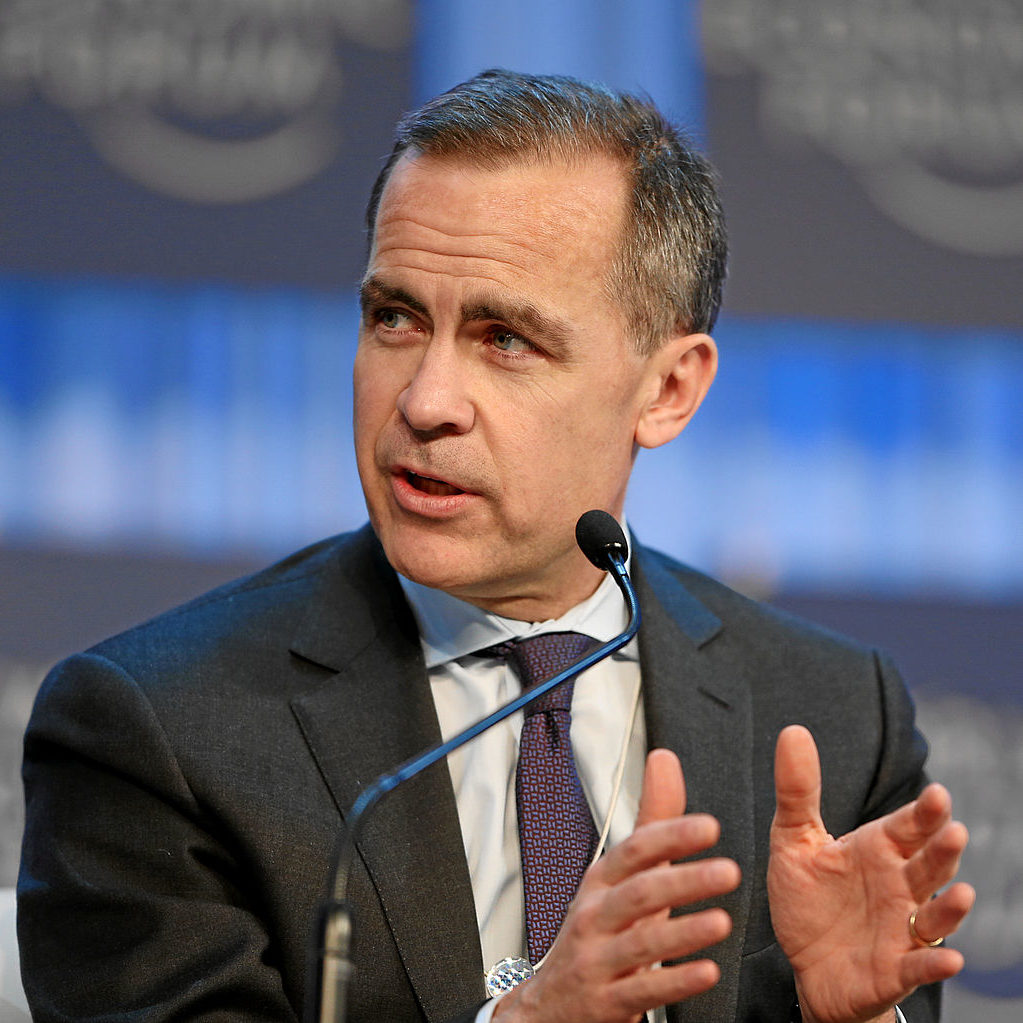
The Glasgow Financial Alliance for Net Zero (GFANZ), chaired by Mark Carney, UN Special Envoy on Climate Action and Finance, unites over 160 firms (together responsible for assets in excess of US$70 trillion).

GFANZ Primer
The Glasgow Financial Alliance for Net Zero (GFANZ), chaired by Mark Carney, UN Special Envoy on Climate Action and Finance, unites over 160 firms (together responsible for assets in excess of US$70 trillion) from the leading net zero initiatives across the financial system to accelerate the transition to net zero emissions by 2050 at the latest.
GFANZ will work to mobilize the trillions of dollars necessary to build a global zero emissions economy and deliver the goals of the Paris Agreement.
GFANZ will provide a forum for strategic coordination among the leadership of finance institutions from across the finance sector to accelerate the transition to a net zero economy.
All initiatives in GFANZ require signatories to set science-aligned interim and long-term goals to reach net zero no later than 2050 in line with Race to Zero’s criteria. These goals are supplemented by member-determined short-term targets and action plans.
To read the publication, please click here.

As net zero commitments proliferate, the refined criteria outline the minimum standard for initiatives of businesses, investors, cities, regions and universities for robust and credible net zero commitments.

Race to Zero Criteria 2.0
The Race to Zero criteria and review process serve two purposes. First, they ensure the credibility of the campaign by laying out clear benchmarks for Partners and Members based in science and best practices. Second, Race to Zero aims to support all actors to set strong targets and work together to improve them over time, including by developing common approaches to outstanding questions. Our vision is a ‘race’ that everyone can join and, together, win.
The High–level Climate Champions, backed by the UNFCCC, require that the commitments brought forward by networks and initiatives recognized in the Race to Zero campaign meet a minimum set of common criteria:
– “Starting Line” criteria define procedural steps for all actors in the Race to Zero
– “Leadership Practices” define substantive areas where networks and initiatives must at least reach the current frontier of best practice, and indicate how leaders can push beyond it.
To read the publication, please click here.

This document provides additional guidance regarding how the Expert Peer Review Group interprets the Race to Zero criteria.

Race to Zero Interpretation Guide
This document provides additional guidance regarding how the Expert Peer Review Group interprets the Race to Zero criteria. It also seeks to provide additional clarity and transparency regarding the Race to Zero application and review process.
Given the complexities of applying the broad Race to Zero criteria in a consistent and fair way across the many different entities joining Race to Zero, the Expert Peer Review Group uses these interpretation points as “rules of thumb” that guide the deliberation and judgement each case requires.
To read the publication, please click here.

Race to Zero partners and stakeholders have identified a need to clarify and work towards harmonizing our language regarding the transition.

Race to Zero Lexicon
Race to Zero partners and stakeholders have identified a need to clarify and work towards harmonizing our language regarding the transition. This document, prepared by the Race to Zero Expert Peer Review Group, attempts to clarify some of the key terms we often use.
We note, however, that Race to Zero partners currently use these terms in various ways. The aim of this lexicon is not to mandate standardization, but rather to suggest opportunities for convergence as a way to reduce communication friction and improve understanding across our community.
To read the publication, please click here.

The High-Level Climate Champions require that the commitments brought forward by initiatives recognized in the Race to Resilience campaign meet a minimum set of Procedural criteria.

Race to Resilience Criteria
The High-Level Climate Champions require that the commitments brought forward by initiatives recognized in the Race to Resilience campaign meet a minimum set of procedural criteria.
Race to Resilience will evolve these criteria with partners to ensure it has suitable levels of robustness, and this will be finalized in the course of 2021. The Champions will also review these criteria in consultation with participants in the Race to Resilience
To read the publication, please click here.

To help catalyze action, the “2030 Breakthroughs” pinpoint specific tipping points for every sector. Collectively, they articulate what key actors must do, and by when, to deliver the systems change we need to achieve a resilient, zero carbon world in time.

2030 Breakthroughs Paper
While significant change is already underway, it must accelerate in all areas of the economy and society in order to deliver a resilient zero carbon future in time.
To win the race to zero emissions by 2050, the world must achieve near term breakthroughs across every sector of the global economy.
Achieving these transformations at the pace and scale required will not be possible without alignment and collaboration. The individual efforts of regions, cities, businesses and investors taking climate action is critical — but racing in their tracks alone will only get us part of the way. We need coordinated action from different players across economic systems to achieve a genuine step-change in progress. This will in turn enable governments to go further and faster in their efforts to decarbonize, activating the positive ambition loop between state and non-state actors.
To help catalyze action, the “2030 Breakthroughs” pinpoint specific tipping points for every sector. Collectively, they articulate what key actors must do, and by when, to deliver the systems change we need to achieve a resilient, zero carbon world in time. This creates a shared vision for all the different players in a system, helping to spur action.
To read the paper, please click here.

